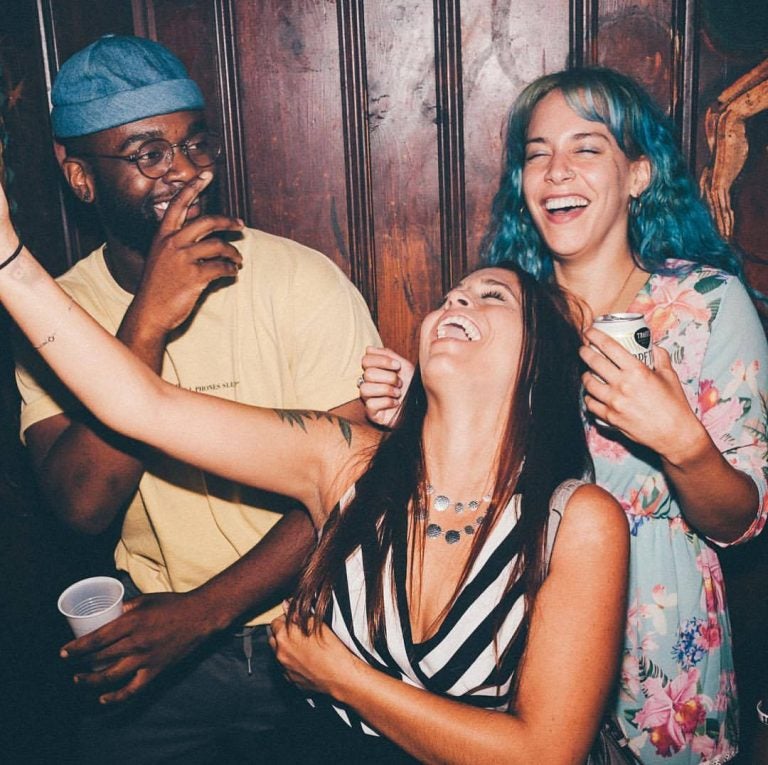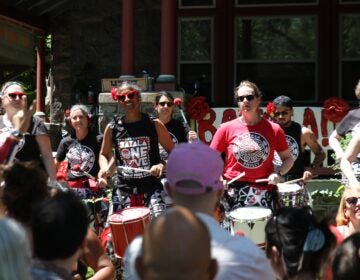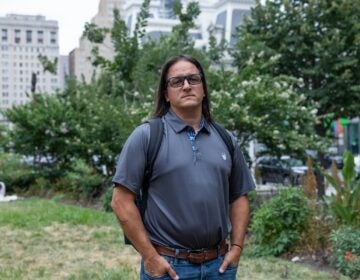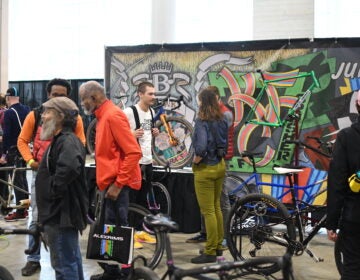City mulls new license to booze that would keep Philly bars open until 4 a.m.
Should Philly's bars stay open until 4 a.m.? Councilwoman Blondell Reynolds Brown thinks so, as long as tax dollars from those late night drinks go to the school district.
Listen 1:58
Partiers revel at The Dolphin Tavern in South Philadelphia. (The Dolphin Tavern/ Facebook)
Should Philadelphia’s bars stay open until 4 a.m.? Councilwoman Blondell Reynolds Brown thinks so, as long as tax dollars from those late night drinks go to the School District of Philadelphia.
“There’s evidence that, when bars stay open later, people commiserate more, they engage in what you do when you are in bars,” said Reynolds Brown at a City Council meeting Thursday where she introduced the measure. “Those potential additional dollars would augment the liquor by the drink tax and those additional dollars would then be channeled towards the school district.”
The bill would allow the city to establish “extended hours zones,” where most establishments that currently serve alcohol could continue to do so until 4 a.m. The proposed legislation doesn’t recommend any sections of the city for the geographic zones; instead, it establishes the framework for designation.
There are nine states and Washington, D.C., that allow alcohol sales after 2 a.m. Some, including Louisiana, allow localities to set closing time for themselves. In New Orleans, the bars never go dark.
That’s not the way things are done in puritan Pennsylvania.
Philadelphia would need the go-ahead from state government for Reynolds Brown’s bill to move forward. The at-large councilwoman said she has the support of state Rep. Jordan Harris, D-Philadelphia, who plans to introduce enabling legislation in Harrisburg, she said.
A bill in California that would have extended bar hours to 4 a.m. went down to defeat last year. Both Harris and Reynolds-Brown have proposed similar bills in the past, and neither got very far.
And in Philadelphia, at least, opposition to the idea doesn’t come from the most obvious quarters.
“That’s the worst idea I’ve ever heard,” said Avram Hornik, owner of The Dolphin Tavern, Morgan’s Pier, and Concourse Dance Bar. “All that’s going to do is cause more problems. People need to go home at some point. Who needs to stay up past 2? Isn’t that late enough?”
Hornik said that people generally only have about three hours of bar-time in them and that extending hours will simply push that window backward. That means more people will party from midnight to 3 a.m. But they won’t drink longer, generally speaking, so the amount of money raised would be insignificant.
Councilman Mark Squilla, whose district includes many of the neighborhoods with the most nightlife, hasn’t come out for or against the extended license to imbibe. On Thursday, he sounded skeptical.
“I don’t know if it’s an idea that would actually make more money,” said Squilla. “I also know that the later you are out, well, often times that’s when more trouble happens. So I’d have to hear some more details about it to be convinced that this is the way to go.”
Reynolds Brown’s previous attempt came in 2012, another time politicians were scrambling to find funds for the schools. The councilwoman recalls that rampant opposition drove her to abandon the idea.
But with Mayor Jim Kenney’s proposal for a battery of new tax increases, including a property tax hike, Reynolds Brown thinks there may be support for her bill now.
“Let’s see if we can get to a different place where we can pull fewer dollars from our city’s real estate taxpayers,” she said.
This time, the councilwoman also has at least one cautiously optimistic ally: the founder of nightlife advocacy group 24-Hour PHL, Michael Fichman.
“People in nightlife arts and culture envy cities that have longer hours,” said Fichman. “I think most people would welcome this.”
Fichman points to cities in Europe that allow alcohol-selling businesses in certain areas to stay open later in exchange for meeting certain public safety demands. In addition to providing extra streetscaping, they also must offer “public safety ambassadors” to help guide people who get lost or manage the risky situations that inebriated people find themselves in.
These zones are also only able to get these licenses if they are providing what Fichman calls “quality cultural content.” Nightlife should be about entertainment, not guzzling more booze, he said
“I hope that whatever comes out of this provides additional venues for nightlife, arts, and culture — and it isn’t just about food and drink,” said Fichman. “When you make good culture, you get better behavior, and public safety and nuisance are foremost in people’s minds when they raise concerns about nightlife.”
WHYY is your source for fact-based, in-depth journalism and information. As a nonprofit organization, we rely on financial support from readers like you. Please give today.







